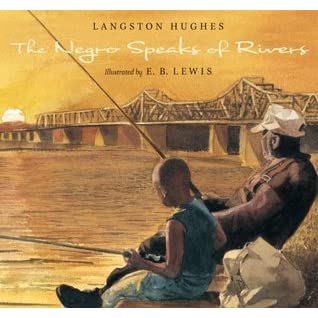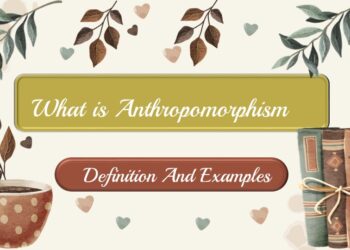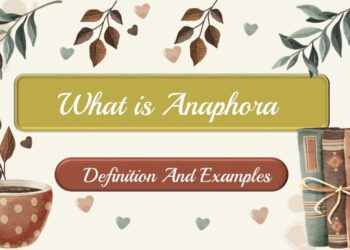How does Langston Hughes use the concept of identity in The Negro Speaks of Rivers
Langston Hughes is considered one of the most influential and renowned African American poets of the 20th century, and his poem “The Negro Speaks of Rivers” is a powerful testament to the black experience and identity. The poem is a celebration of the African American spirit and its connection to the ancient rivers of the world. Hughes uses the concept of identity in this poem to explore the depth and richness of the African American experience, and to assert the strength and resilience of black people in the face of adversity.
The concept of identity in The Negro Speaks of Rivers:- “The Negro Speaks of Rivers,” Hughes uses the idea of identity to show how black people have always been a part of the world’s history and culture. He begins the poem by declaring, “I’ve known rivers,” and goes on to describe the Euphrates, the Nile, and the Mississippi. By connecting the black experience to these ancient rivers, Hughes is asserting that black people are a fundamental part of human history and civilization. He is also suggesting that black people have a deep connection to the natural world, and that this connection has helped them survive and thrive throughout history.
Also Read:-
- Discuss the theme of individualism in Ralph Waldo Emerson’s
- Discuss the theme of power in George Orwell’s 1984
- Gabriel Garcia Marquez use history in The Autumn of the Patriarch
- Discuss the theme of individualism in Ralph Waldo Emerson’s
Throughout the poem, Hughes uses vivid and powerful imagery to explore the black experience and identity. He describes the “muddy bosom” of the Mississippi and the “golden sands” of the Nile, painting a picture of the richness and diversity of the African American experience. He also speaks of the “dusky” faces of black people, suggesting that they are mysterious and enigmatic. Through his use of language and imagery, Hughes is creating a sense of pride and strength around the black identity, asserting that black people have a deep and powerful connection to the world around them.
The concept of identity in The Negro Speaks of Rivers:-One of the key ways that Hughes uses the concept of identity in “The Negro Speaks of Rivers” is to explore the history and legacy of slavery. He speaks of the “ancient” rivers that he has known, suggesting that black people have been a part of the world’s history for a very long time. He also speaks of the “slave ships” that carried black people across the Atlantic, connecting the black experience to the trauma of the transatlantic slave trade. By acknowledging this painful history, Hughes is asserting that black people have suffered greatly, but that they have also survived and thrived in the face of this adversity.
Hughes also uses the concept of identity to explore the idea of home and belonging. He speaks of the “deep rivers” that he has known, suggesting that black people have a deep connection to the land and the natural world. He also speaks of the “African” roots of the black experience, suggesting that black people have a spiritual connection to their ancestral homeland. By emphasizing these connections, Hughes is asserting that black people have a sense of belonging and identity that is rooted in their history and culture.
The concept of identity in The Negro Speaks of Rivers:-In addition to exploring the black experience and identity, Hughes also uses “The Negro Speaks of Rivers” to comment on the larger issues of race and social justice. He speaks of the “old, old rivers” that he has known, suggesting that the struggles and injustices faced by black people are not new or unique. He also speaks of the “mighty” rivers that he has known, suggesting that black people have the strength and resilience to overcome these challenges. By making these observations, Hughes is asserting that black people have a long and proud history of fighting for their rights and freedoms.
The concept of identity in The Negro Speaks of Rivers:-Overall, Langston Hughes uses the concept of identity in “The Negro Speaks of Rivers” to explore the richness and complexity of the African American experience. He uses vivid and powerful imagery to paint a picture of black identity that is rooted in history, culture, and connection to the natural world.
The Negro Speaks of Rivers “Summary”
“The Negro Speaks of Rivers” is a poem by Langston Hughes that celebrates the African American experience and identity through the powerful imagery of ancient rivers. The poem is written in free verse, and each line is carefully crafted to evoke a sense of pride and strength around the black identity. The speaker of the poem is a “Negro,” who speaks of his deep and abiding connection to the rivers of the world, asserting that black people have always been a part of human history and civilization.
The concept of identity in The Negro Speaks of Rivers:-The poem begins with the line, “I’ve known rivers,” which sets the tone for the rest of the poem. The speaker goes on to describe his connection to four ancient rivers: the Euphrates, the Nile, the Mississippi, and the Congo. Each river represents a different aspect of the black experience, and the speaker uses powerful imagery to evoke the depth and richness of each river’s history and significance.
The Euphrates River is described as being “ancient as the world,” and the speaker asserts that he bathed in its waters when civilization was young. The river represents the idea of the black spirit being connected to the ancient world, and the speaker asserts that black people have always been a part of human history and civilization.
The concept of identity in The Negro Speaks of Rivers:-The Nile River is described as being “old as the world,” and the speaker asserts that he built a hut on its banks and watched the pyramids being built. The Nile represents the idea of home and belonging, and the speaker emphasizes the connection between black people and the land of Egypt.
The Mississippi River is described as being “muddy” and “strong,” and the speaker asserts that he has seen its muddy bosom turn all golden in the sunset. The Mississippi represents the idea of freedom and the struggle for civil rights, as the river was a key location in the fight for black liberation in the United States.
The concept of identity in The Negro Speaks of Rivers:-The Congo River is described as being “deep” and “dark,” and the speaker asserts that he heard the singing of the Congo in the blood of his veins. The Congo represents the idea of ancestral heritage and the connection between black people and their African roots.
Throughout the poem, Hughes uses powerful and vivid imagery to paint a picture of the depth and complexity of the black experience. The speaker’s connection to these ancient rivers is a testament to the enduring legacy and contributions of black people to human history and civilization.
The concept of identity in The Negro Speaks of Rivers:-The final lines of the poem emphasize the strength and resilience of black people in the face of adversity. The speaker asserts that he has seen his people “die” and “be enslaved,” but that they have always been able to rise up and “build” again. This message of resilience and strength is a powerful reminder of the enduring legacy of the black spirit.
Conclusion
Langston Hughes uses the concept of identity in “The Negro Speaks of Rivers” to explore the depth and richness of the African American experience, and to assert the strength and resilience of black people in the face of adversity. Through his use of vivid and powerful imagery, Hughes creates a sense of pride and strength around the black identity, emphasizing the connection of black people to the natural world and their ancestral heritage. He also acknowledges the painful history of slavery and social injustice that black people have faced, while asserting that they have a long and proud history of fighting for their rights and freedoms. “The Negro Speaks of Rivers” is a powerful testament to the African American spirit, and a celebration of black identity that continues to resonate with readers today.
FAQ.
Q. What is the poem “The Negro Speaks of Rivers” about?
Ans. “The Negro Speaks of Rivers” is a poem by Langston Hughes that celebrates the black experience and identity. The poem connects the African American experience to the ancient rivers of the world, asserting that black people have always been a part of human history and civilization. It also acknowledges the painful history of slavery and social injustice that black people have faced, while asserting their strength and resilience in the face of adversity.
Q. What is the significance of the rivers in the poem?
Ans. The rivers in the poem represent the ancient and enduring nature of the black experience. By connecting the black experience to these ancient rivers, Hughes is asserting that black people have a deep and powerful connection to the world around them. The rivers also represent the idea of home and belonging, as well as the painful history of slavery and the transatlantic slave trade.
Q. What is the tone of the poem?
Ans. The tone of the poem is proud, celebratory, and assertive. Hughes uses powerful and vivid imagery to paint a picture of the richness and complexity of the African American experience, emphasizing the strength and resilience of black people in the face of adversity. The poem also acknowledges the pain and suffering that black people have experienced throughout history, while asserting their long and proud history of fighting for their rights and freedoms.
Q. What is the message of the poem?
Ans. The message of the poem is that black people have a long and rich history that is rooted in the natural world and their ancestral heritage. The poem celebrates the strength and resilience of black people in the face of adversity, while acknowledging the pain and suffering that they have experienced throughout history. The message of the poem is one of pride and celebration of black identity, and a call to recognize the contributions of black people to human history and civilization.
















